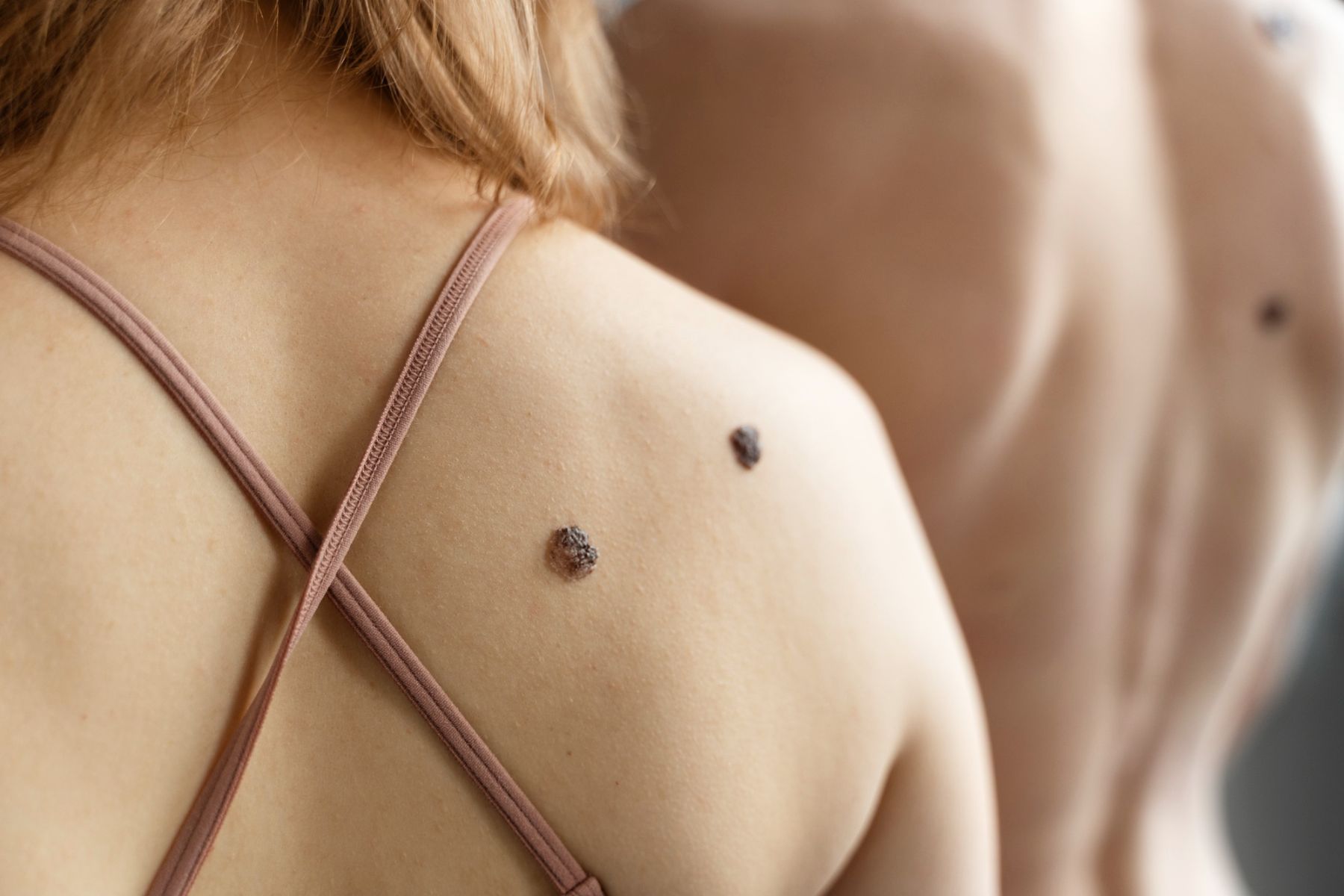As the days grow shorter and the sunshine fades, most of us start to feel a little different. You might notice you are more tired, your skin feels drier, or your energy levels dip for no clear reason. For many people, this is linked to one simple thing: lower levels of vitamin D.
Vitamin D plays a crucial role in keeping your body and mind healthy. Yet as autumn arrives and daylight drops, it becomes harder for your body to make enough of it naturally. By the time winter comes around, a lot of people in the UK are running low without even realising it.
Your local pharmacy in Charlton can help you understand what vitamin D does, why it is important, and how to keep your levels topped up through the colder months.
What vitamin D actually does
Vitamin D is known as the sunshine vitamin because your skin makes it when exposed to sunlight. It helps your body absorb calcium and phosphate, both of which are vital for healthy bones, teeth, and muscles.
But its benefits go much further than that. Vitamin D also supports your immune system, helps reduce inflammation, and plays a part in maintaining mood and brain function. Low levels have been linked to fatigue, low mood, muscle weakness, and even slower recovery from illness.
When levels drop too far, people can become deficient. Over time, this can lead to conditions like bone pain or more serious issues such as osteoporosis.
Why autumn is the danger zone
During spring and summer, most people get enough sunlight to produce a healthy amount of vitamin D. In the UK, even a few short periods of sun exposure each week can be enough to keep your levels stable.
By October, however, the angle of the sun changes, and there simply is not enough UVB light to trigger vitamin D production in your skin. Add in more time spent indoors and fewer daylight hours, and it is easy to see why so many people become deficient between autumn and spring.
The darker your skin tone, the less vitamin D you naturally produce, which means people with darker skin are even more likely to need supplementation during the colder months.
Common signs of low vitamin D
Low vitamin D can show up in subtle ways at first, which is why it often goes unnoticed. Some of the most common signs include:
- Feeling tired or run down for no clear reason
- Aching joints or muscle weakness
- Low mood or feeling more anxious than usual
- Slow recovery from colds or infections
- Hair loss or thinning
- General lack of energy
If any of these sound familiar, it could be worth checking your vitamin D levels.
How to keep your levels healthy
There are a few simple ways to maintain healthy vitamin D levels during autumn and winter.
1. Get sunlight when you can
Even though the UV levels are lower, getting outside still helps boost your mood and supports your body’s natural rhythm. Try to spend some time outdoors each day, especially around midday when light levels are highest.
2. Eat vitamin D rich foods
Some foods naturally contain small amounts of vitamin D. These include oily fish like salmon and mackerel, egg yolks, fortified cereals, and red meat. They will not provide enough on their own but are a good way to support your intake.
3. Take a supplement
Public Health England recommends that adults and children over one year old take a daily supplement containing 10 micrograms of vitamin D during autumn and winter.
Supplements come in different forms such as tablets, capsules, or sprays. Your pharmacist can help you find one that suits you best. Vitamin D3 is the form most easily absorbed by the body.
4. Consider a Vitamin D vaccination
For people who struggle to absorb supplements, forget to take them, or just want longer lasting protection, a Vitamin D vaccination is now available privately at Village Pharmacy.
This simple injection delivers a carefully measured dose of vitamin D directly into the muscle, where it is slowly released over time. It is an excellent option if you have a busy lifestyle or low absorption due to medical conditions.
The vaccination helps maintain steady vitamin D levels through autumn and winter with a single appointment, saving you the need to remember daily tablets. If you are interested, you can ask one of the pharmacy team for more details about how it works and whether it is right for you.
Who is most at risk of deficiency
Anyone can become low in vitamin D, but certain groups are more vulnerable:
- People who spend most of their time indoors
- Older adults, as the skin becomes less efficient at making vitamin D
- People with darker skin tones
- Those who wear clothing that covers most of their skin when outdoors
- People following vegetarian or vegan diets with limited sources of vitamin D
- Individuals who are overweight, as vitamin D can become trapped in body fat and harder to use
If you fall into one or more of these groups, it is especially important to think about supplementation or a vaccination option.
The link between vitamin D and immunity
Vitamin D plays a key role in immune health, helping your body fight off viruses and infections. Several studies show that people with higher vitamin D levels are less likely to catch seasonal colds and flu.
That is why pharmacies often recommend topping up your vitamin D around the same time as getting your flu jab. The two go hand in hand for keeping your immune system strong through the colder months.
If you have noticed that you catch every cold going or feel more tired than usual, it might be a sign your immune system needs some extra support.
Vitamin D and mental wellbeing
Low vitamin D can also affect mood. The lack of sunlight in autumn and winter is one reason why many people feel more down or fatigued as the days shorten. Vitamin D helps regulate serotonin and dopamine, which are important for emotional balance and motivation.
If you find your mood drops every winter, a supplement or vaccination could help you feel more stable and energised. It is not a replacement for mental health treatment, but it can be an important part of your overall wellbeing plan.
Can you have too much vitamin D
Yes, but it is very rare. You would need to take extremely high doses for a long time to reach unsafe levels.
If you take supplements as directed or have a vaccination under professional supervision, there is no risk of overdose. Your pharmacist will always make sure you receive the right amount for your needs.
When to check your levels
If you are unsure whether you are low, you can ask your pharmacist about testing options. A simple finger prick blood test can show whether your levels are within a healthy range.
If you are consistently tired, have muscle pain, or feel like your immune system is struggling, it is worth checking rather than guessing.
The role of your local pharmacy
Pharmacies are the easiest and most convenient places to get help with vitamin D. You do not need an appointment, and the team can help with everything from advice on supplements to arranging a vaccination.
They can also check if any of your current medicines affect vitamin D absorption and suggest ways to get the best results from your supplements.
At Village Pharmacy, the team are fully trained to advise on both oral supplements and the private Vitamin D vaccination service, so you can choose the option that suits your lifestyle.
Small changes, big difference
Keeping your vitamin D levels up does not take much effort but can make a huge difference to how you feel through autumn and winter. You will notice better energy, stronger immunity, and an overall improvement in wellbeing.
If you want to get ahead before the darker months set in, drop by the pharmacy for a chat. The team can help you find the right supplement or book you in for a vaccination if you prefer longer lasting protection.
Vitamin D might be small, but it is mighty. It supports your bones, muscles, immune system, and even your mood. As sunlight fades, topping up is one of the simplest and most effective ways to look after your health.
You can find more information and details about the private Vitamin D vaccination service on the pharmacy’s website or by speaking directly with a member of the team. Stay well, stay bright, and let a little sunshine back into your routine this autumn.





